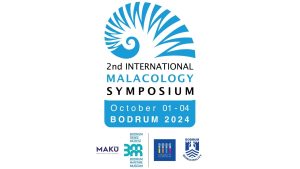A Brief History Of Fishing In Bodrum
Fishing is naturally a very old human activity. Humans have always tried to catch fish or other sea/water creatures everywhere they were close to the sea or the other water sources for their own consumption. On the other hand, the commercial fishing is not very old. Although the tools such as the fishing nets and the boats, the major tools of commercial fishing, have been around for a long time, the biggest problem in this area has always been the task of transporting the fish caught to the internal areas as quickly as possible. Otherwise, there were fishing fleets in the Northern Atlantic as far back as a few hundred years ago. Furthermore, the demand for fish has also always been as important as its transportation to the internal regions. The small-scale fishing, that is, the selling of the daily caught fish locally, has existed everywhere there was fish consumption.
Bodrum has not been any different. Since it is a town by the coast, its inhabitants have always eaten fish and the other sea creatures. Before the Republican period, the Christian inhabitants of Bodrum consumed also the sea creatures such as octopus and were in the business of exporting dried octopus. The fishing of this period was limited to Bodrum’s surroundings and the nearby islands and was done by small boats. There were no large fishing boats yet.
In the Republican era, there was no immediate development in this area in the beginning. There were people, especially the Cretan refugees, who made a living out of fishing on their small boats and piyades, but the commercial fishing would not take off until the period of 1950-55. The greatest obstacle during this time was the transportation. Since the roads were not adequate, it was not easy to take the fish to the places outside of Bodrum. There were three alternatives: to take the fish to the places where there were better roads to be transported by trucks; to load the fish on local jeeps and try to sell it in the villages, towns around Bodrum and even in the provincial capital Muğla (however, the inhabitants of these places did not consume much sea products during those years); and finally the option of bartering the fish with the Greeks living on the islands. The bartering (or aktarma, the transfer, as it was called by the locals) was based on meeting the Greeks in the middle of the sea and transferring the catch to them in return for needed products such as coffee, tea, sugar, blanket or, when none existed, gold. Soon there were people whose specialty was arranging these meetings.
Large-scale commercial fishing, the trawlers and the seiners, began appearing in beginning of the 1960s. The period before this had consisted mostly of small-scale fishing. The only fishing net action during these years was what the locals called the land seining. It was Deli Bayram Dayı who first began doing land seining with his 6,5 meter long piyade during the period of 1940-45. The trawling and the actual seining, the purse seining, started in the 60s. The first and the most famous trawler was Hasan Reis and the first trawler boat was the trata (big fishing boat) named Mustafa. The number of tratas would increase in time. However, there would never be a wholesale fishing market in Bodrum; nor any fish merchants. Working mainly in the gulfs of Gökova and Güllük, in the south and north of Bodrum, respectively, each trata would take care of its own catch by hiring a truck and sending it to Izmir’s wholesale fish market. Since getting to Izmir was no more a problem, the trading with the Greeks was over. Sometimes the Bodrum fishermen would make long trips to the other parts of Turkey for fishing, but these were rare. For example, one notable exception was when the Bodrum fishermen went to Mersin, located in the southern Turkey on the Mediterranean coast, to catch groupers a few decades ago, as there was abundance of them in those years. Even those who were not professional fishermen had bodi and piyade type of boats built in order to go and catch these groupers.
There is still both small and large-scale fishing in Bodrum, but fishing has never been a big marine activity in this town. On the other hand, as it happened with sponge diving, the fishing, too, pushed the demand for some types of boats, bodis and piyades, for small-scale fishing and gulets for large-scale fishing. For example, the very first gulet of Bodrum was built for fishing.
Prepared by: Ali Kemal Denizaslanı and Timuçin Binder
Written by: Timuçin Binder
